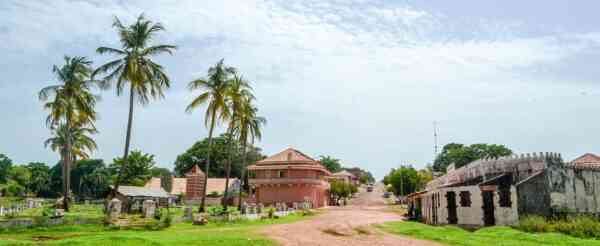The tiny state of Guinea-Bissau is located in West Africa, in the same lands from which several centuries ago the colonialists massively exported slaves to the New World. In those years, this land was filled with despair and cruelty, and despite the fact that times have changed a lot since then, this country is still one of the least prosperous in the world.
Facts about Guinea-Bissau
- When the Europeans first visited these lands, the expedition was attacked by the locals. The captain who led it died, and the discoverers bypassed the Guinean coast for the next twenty years.
- Despite the tiny size of Guinea-Bissau, about 40 different dialects and adverbs are in use here. The official language is Portuguese, but almost no one speaks it.
- In local villages, the dead are buried right in their homes.
- Despite the fact that this is still Africa, in Guinea -Bissau has a huge number of rivers (interesting facts about rivers).
- Social stratification here is one of the most noticeable in the world. In the neighborhood of shacks, neat houses hidden behind high fences can easily stand.
- There is not a single power plant in all of Guinea-Bissau. Generally. Electricity in cities is supplied from local city generators, but since fuel costs money, electricity is supplied for two to three hours a day, and that’s it.
- Local laws prohibit eating crocodile meat, while not regulating cannibalism in any way.
- The country’s population is about 2 million people.
- An ordinary worker, for example, a factory employee or a cashier in a store, in Guinea-Bissau receives about 30-40 dollars a month. Some «middle manager» – 140-150 dollars.
- There are no theaters or cinemas in this country. None at all.
- Almost a third of the country’s population lives in the capital city of Bissau. It was once founded by the Portuguese to become a transit point for the export of slaves.
- More than half of the local residents can neither read nor write.
- In 2012, the government in Guinea-Bissau changed in as a result of a military coup, and the main reason for the riot was that the army did not pay salaries for 8 months.
- It is still accepted here that parents themselves choose husbands and wives for their children.
- Guinea-Bissau is one of the world’s first cashew nut producers.
- Representatives of the local Flupe tribe, living on the border with Senegal, still practice cannibalism.
- Without an official invitation a foreigner cannot visit Guinea-Bissau.
